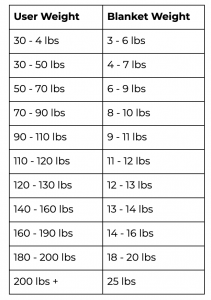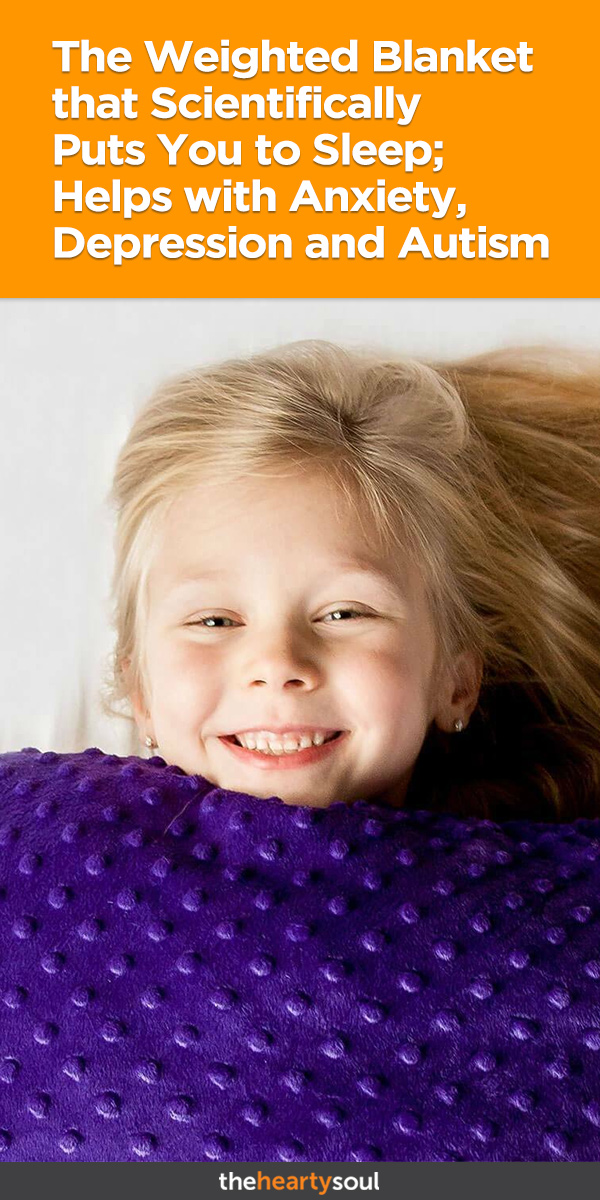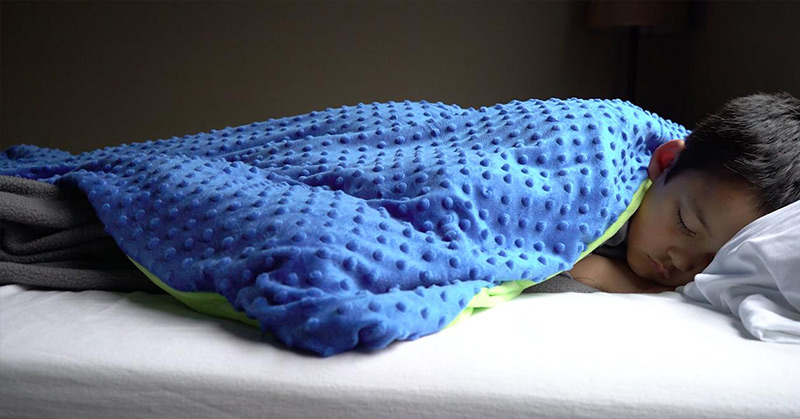In the last several years, countless natural health remedies have reached their point of internet fame. While these trends are constantly changing and evolving, some of these remedies deserve an extra moment in the spotlight.
Recently, you may have seen advertisements for weighted blankets when scrolling through social media. You may have also fantasized or imagined just how comforting this blanket would be. Just as the name suggests, a weighted blanket is designed to be heavier than a standard blanket, weighing between 4 to 30 pounds, these blankets are typically filled with natural materials such as hemp, buckwheat, or hypo-allergenic fillers such as glass beads.
These blankets provide more than just comfort. A weighted blanket is designed to replicate a form of deep touch pressure therapy (DTP). This form of therapy has been shown as exceptionally beneficial for those with sensory processing disorders such as attention deficit hyperactivity disorder (ADHD), sensory processing disorder (SPD), depression, autism spectrum disorder, and Alzheimer’s dementia [1][2].
Sensory overload is often experienced and related to anxiety, depression, restlessness, irregular sleeping patterns, poor attention spans, and chronic stress.
Touch therapy has been noted to have immediate and long-term effects on the body’s biochemistry, including decreased levels of the stress hormone cortisol, and increased levels of the neurotransmitters serotonin and dopamine, which play roles in mood regulation, movement and impulse control. [3][4]
Weighted blankets are engineered to be around 10% of your bodies weight. They help to relax the nervous system by simulating the feeling of being held or hugged. This remedy supports many conditions, as it fulfills one of our most basic survival needs surrounding love and connection.
A WEIGHTED BLANKET MAY POSITIVELY SUPPORT:
- ASD (Autism Spectrum Disorder)
- ADD / ADHD
- Aggressive behaviours
- Agitation
- Alzheimer’s
- Anxiety Disorders
- Asperger’s Syndrome
- Bipolar Disorder
- Brain trauma and injuries (PTSD)
- Cerebral Palsy
- Down Syndrome
- Fetal Alcohol Syndrome
- Insomnia
- Menopause
- Pain
- Parkinsons
- Restless Leg Syndrome
- Restless Sleep
- Tension
- Tourette’s Syndrome
CHOOSING YOUR WEIGHTED BLANKET
A good calculation to use when finding your weighted blanket is calculating 10% of your body weight plus a pound or two. The last thing you’ll want to look at is the dimensions. A weighted blanket should be smaller than the size of your bed. It’s designed to sit on top of the bed, so it doesn’t slide off.


Sources
- Effects of Deep Pressure Stimulation on Physiological Arousal, https://www.terapeutas-ocupacionales.es/assets/files/COPTOA/Bibliotecavirtual/AJOT/Mayo-Junio-15/6903350010p1.pdf
- Cortisol decreases and serotonin and dopamine increase following massage therapy. https://www.ncbi.nlm.nih.gov/pmc/articles/PMC4290532/
- Self-soothing behaviors with particular reference to oxytocin release induced by non-noxious sensory stimulation https://www.ncbi.nlm.nih.gov/pubmed/16162447
- Research into our sense of touch leads to new treatments for autism https://sitn.hms.harvard.edu/flash/2016/research-into-our-sense-of-touch-leads-to-new-treatments-for-autism/

